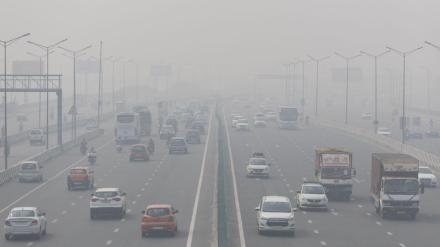Amid a sharp spike in air pollution, the Centre’s panel on Delhi-NCR air quality reimposed Stage 3 restrictions under the Graded Response Action Plan (GRAP) on Thursday (January 9). The move comes after the region’s 24-hour average Air Quality Index (AQI) climbed to 357, categorised as “very poor”, up from 297 the previous day. Officials attribute the worsening air quality to calm winds and foggy conditions.
The Commission for Air Quality Management, tasked with mitigating pollution in Delhi-NCR, directed authorities to implement Stage 3 curbs immediately to prevent further deterioration.
Stage 3 restrictions include a ban on non-essential construction activities and restrictions on BS-III petrol and BS-IV diesel cars in Delhi and nearby NCR districts. Exceptions are made for persons with disabilities. Non-essential diesel-operated medium goods vehicles meeting BS-IV or older standards are also prohibited from operating in Delhi.
Schools up to grade V are required to shift to a hybrid mode, offering online education options for parents and students.
GRAP is a tiered system that categorises air quality into four stages based on AQI levels: Stage I (Poor, AQI 201-300), Stage II (Very Poor, AQI 301-400), Stage III (Severe, AQI 401-450), and Stage IV (Severe Plus, AQI above 450).
Delhi’s air quality plummets during winters due to vehicle emissions, paddy-straw burning, firecrackers, and unfavorable weather conditions. Health experts warn that prolonged exposure to such pollution is equivalent to smoking 10 cigarettes a day, posing severe risks to public health.
